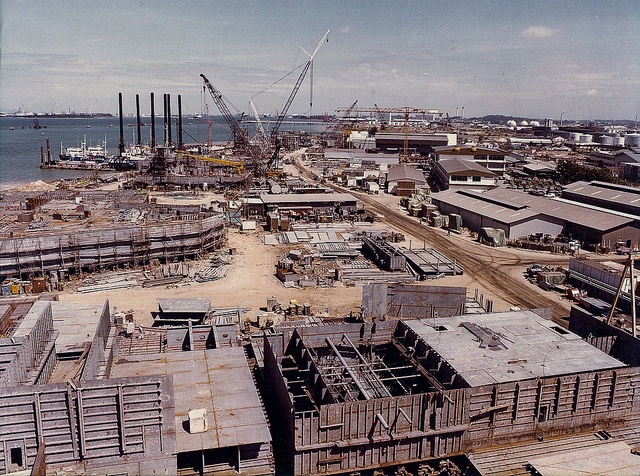Offshore employment positions are usually held on an offshore oil rig and many have an extremely high earning potential. The following are some of the pros and cons to working offshore as well as three top paying offshore jobs.
Pros and Cons of Working an Offshore Job
Holding an offshore position can be a demanding job, but it has a host of benefits. If you’re looking for a high-paying job that is both mentally and physically challenging, you won’t be disappointed. A starting salary for many of the positions can exceed $80,000, depending on the type of job that you hold. Also, you get to travel to a variety of destinations, so you don’t have to worry about staying in one location for very long. If you work on some of the larger rigs, you’ll get to enjoy comfortable living arrangements and the latest technological gear.
As with anything, there are a number of cons that come along with working offshore. The rig will be your home for months on end, and you’ll be in close quarters with your co-workers. It’s also one of the most dangerous jobs, and you could be put at risk for suffering an injury or fatality. If you are injured while employed on an oil rig, be sure to hire a competent Offshore injury lawyer.
Engineer
There are a number of engineer positions in the offshore drilling industry. A mud engineer is someone who is responsible for the drilling fluids that are used on the offshore rig. They should hold a graduate degree in chemistry and have thorough training and schooling in relation to that particular field. Another type of engineer associated with offshore employment includes a subsea engineer. They are in charge of the planning, repair, operations and maintenance in regards to the subsea system. The drilling engineer oversees the supervision and administration of the drill, and works with other professionals on the progress of the job and the various locations.
Rig Safety & Training Manager
Ensuring the safety of the crew, and the environment in which they work in is a critical part of an offshore position. A rig safety and training manager is another high paying job that requires good organizational skills and a knowledgeable computer background. In addition to having a good eye for the health and well-being of their crew, and the conditions that they work in, they should also be an excellent communicator.
Maintenance Supervisor
There are a number of features and functions of a rig that are crucial for keeping it in proper running order. A maintenance supervisor’s primary responsibilities include the repair and upkeep of the mechanical operation, diesel engines, and all of the electrical equipment associated with the rig. This even includes changing light bulbs. Because they can be called for duty anytime, it’s normal for them to put in a 12 hour or more shift.
Holding an offshore position is not your ordinary job. This challenging employment opportunity will come with a variety of elements that puts your physical and mental abilities to the test. In addition to the high rate of pay and tax deductions, offshore employment opportunities allow an individual to travel the world over.
Midnight Walker is a job market analyst and enjoys helping those out of work to connect with jobs and opportunities. She is passionate about networking, career coaching and helping people find their dream job. The experienced Offshore injury lawyer group at Doyle Raizner help clients recover monetary compensation when they are injured while employed offshore.
Photo Credit: http://www.flickr.com/photos/

